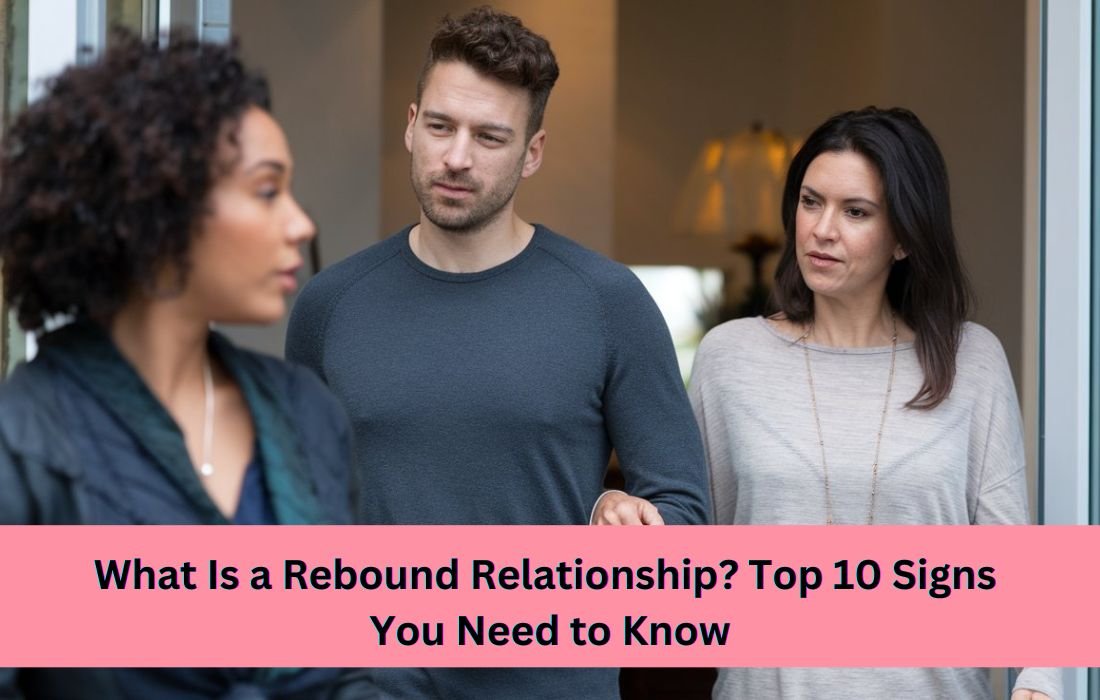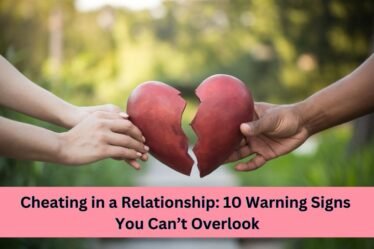
What is a rebound relationship? Is it a relationship that someone enters shortly after a previous one ends? Okay, okay. Please stop guessing.
Let me explain everything to you about what a rebound relationship is, its signs and how to end a rebound relationship?
But before that promise me, you will stick till the end.
So, let’s go.
What is rebound relationship?
A rebound relationship is a kind of relationship where only one person is emotionally available for another person. In such a relationship only one person is putting in an effort.
Just one person is texting and calling.
And another person is taking you for granted.
In order to have a healthy relationship, you must have to work together. If it’s not happening in your case, then you are in a rebound relationship.
There are so many signs you can address to confirm that you are in a rebound relationship.
Stages of rebound relationship

1.Recovery from heartbreak
- They are still getting used to the pain that lingers after the breakup.
- They feel lonely, hurt, and insecure.
2. Instant attachment
- They start jumping into a new relationship that will fill up this hole.
3. Honeymoon phase
- The new relationship feels exciting and fresh.
- Both partners idealize each other and avoid deeper issues.
4. Comparison stage
- They compare you to their ex-partner.
- This can lead to doubts, and conflicts.
5. Reality check
- Emotional baggage from past relationships affects rebound relationship.
6. Decision point
- If both partners want to work through challenges, the relationship grows. Otherwise, it ends when emotional clarity is achieved.
7. Personal growth or breakup
- If the relationship ends, the person finally focusses on personal healing.
- In some cases, the rebound relationship transitions into a healthy, lasting bond.
Why people get involved in rebound relationships?

There are many reasons why people fall into rebound relationships, among them the following:
1. They are dealing with rejection or being dumped.
2. Fear of solitude.
3. The need for attention and acceptance.
4. To fill emotional emptiness, void and loneliness.
Common misconceptions and stereotypes of the rebound relationship
We all carry some misconceptions based on societal norm and beliefs that have passed down and reinforced over a period of time.
Here is some misconception of rebound relationship:
1. Rebound relationships have short-term end
The length of the relationship depends upon the person and his purpose of being in a relationship.

Not everyone is alike.
There are people who know how to manage a relationship and hold on to them for years.
2. Rebound relationships are about sex
This is not necessarily a primary motive or reason to enter into a rebound relationship.
Most of these individuals are looking for emotional gratification-that is, stronger bonds.

The reasons and the nature of a rebound relationship differ significantly among individuals, therefore, should not be presumed in general.
3. Rebound relationships are evil
Rebound relationships feel wrong. They can seem destructive and selfish. Many believe they distract you from healing after a past relationship.

The major rebound relationship indicators are as follows:
1.They require frequent validation from you.
2. They want to return their ex.
3. They simply find an excuse to compare between you and your ex
4. Only sex is all that he talks about.
5. Emotionally unavailable and even appears to be insecure in the relationship.
Rebound relationships can be a red flag. They signal deeper emotional issues. These relationships are challenging.
They can impact your mental health.
Advantages and disadvantages of rebound relationships
A rebound relationship seems good with its pros and cons.

Pros
1. Excellent emotional support
The success of a rebound relationship depends on emotional intelligence.
A supportive partner with high emotional intelligence can make a difference. They provide the emotional strength needed for positive change.
2. Heal
Soul partners provide emotional support to one another and thereby heal in case of their past experiences.
In a rebound relationship, this will relieve loneliness and comfort the person.
3. Personal growth
A rebound relationship can be a source of personal growth and self-discovery.
People in love are confused what they want but, after time, they realize who they are and what they want from the other person.
Drawbacks

1. Lacking sympathy
A relationship is sometimes torn apart due to the lack of sympathy.
And it causes conflicts and misunderstandings.
2. Emotional baggage
This brings out that every person in a relationship takes emotional wounds to the next relationship instead of healing them.
It includes unresolved emotions, a lack of trust, and other insecurities.
Therefore, you need to take your time to heal and come out from the experience.
You can talk to a therapist, friends, or family is one of the best ways of coping with the emotions.
3. Rebound into old unhealthy relationship patterns
Constantly rebounding after breakups can be an unhealthy pattern. It is a sign of self-reflection and self-worth building.
Rebound relationship success rate
It is a bit challenging to measure the success rate of rebound relationships that varies based on beliefs and past traumas.
The other rebound relationships stay for a short time period then disappear, while other rebound relationships take a lifetime to find satisfaction.

Other factors that can influence the successful rate of rebound relationships includes:
1. Communication
Communication is the base of any relationship. Clear and transparent communication can help increase the chances of a rebound relationship.
It will help avoid misunderstanding and fighting between the two.
2. Empathy
Knowing and respecting each other’s feelings is very crucial for healthy relationships. But it calls for a great emotional intelligence.
3. Emotional preparation
If the people are emotionally prepared for a new relationship, then they will easily connect with their new partner on a deeper level.
4. Efforts
When we talk about relationships, both people should invest equal time and energy.
Overall, success or failure in rebound relationships all lies in the type of former relationship.
It is just a little harder to have more time for healing for people whose relationships ended by trauma or abuse before actually finding another relationship.
Warning signs of a rebound relationship

1. Emotional baggage
Unresolved feelings from a past relationship, like fear and insecurities, do not allow other people to enter into your life.
Starting a new relationship without healing can create complications later.
Emotional baggage affects your interactions with a new partner and leads to unnecessary stress.
2. Quick attachment
The person starts to form an intense emotional connection quickly just to fill an emotional void.
Therefore, know the reasons behind these emotions to make sure they’re not covering up unresolved emotions.
3. Comparing the new partner to an ex
The person constantly compares their new partner to their ex, which is a sign of unresolved emotions.
This pattern can cause you to miss out on the real person.
4. Avoiding alone time
Avoiding solitude is the reason you haven’t healed from your past relationship.
You spend all your time with a new partner and do not address your painful feelings from a breakup.
5. Rushing into commitment
Making big decisions early, such as moving in or saying, “I love you,” can suggest you’re replacing the comfort of a past relationship.
This rush can compromise the formation of a proper foundation, which can cause problems later.
6. Unresolved issues
Unresolved issues such as trust or communication issues in your previous relationship can appear in your new relationship.
These unresolved problems require attention not to negatively impact your present relationship.
7. Inadequate healing of individual
When the person fails to heal after a breakup, it can affect the recovery and growth process.
Ramping into a new relationship will possibly rob you of the much-needed lessons from your previous.
8. Idealizing the new partner
You end up viewing the new partner as without any flaws because of pent-up emotions from your former love relationship.
This “rosy glasses” view could leave you blind to what to expect in the near future.
9. Seek validation
You use a relationship for self-esteem to undue the burden on each other.
A healthy relationship starts with self-confidence and doesn’t rely only on external approval.
10. Lack of genuine connection
Despite strong emotions, rebound relationships often lack meaningful connections.
Quickly starting a new relationship might indicate you’re avoiding emotional healing.
How to end a rebound relationship?
It’s not easy to end a rebound relationship without drama.

Here are some simple steps that can help:
1. Open communication
Let the other partner know why you are ending this relationship. Let them know why you need space.
Discuss honestly with your partner regarding your feelings and intentions. Let them know why you think the relationship is not working and why you need to leave the relationship.
2. Never blame
There are many reasons for the relationship not working and it cannot be blamed on any of the persons. Show compassion towards each other.
Both of them need to decide that breaking the relation was a mutual decision.
So, there should not be a place for blames or harsh words because it will deteriorate the situation further.
3. Healing time for you
It is hard to terminate a relationship after being attached to someone. It leads to a great deal of pain and trauma.
Things sometimes go from bad to worse, like some people need therapy while others commit suicide.
The only thing you will really need at this time is time to heal and work through your emotions.
“Was this helpful”? Share with your friends!



